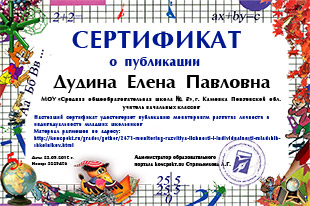Урок английского языка "Проблемы молодежи. Молодежный язык" 11 класс
Общеизвестно, что одним из способов совершенствования знаний учащихся по иностранному языку является просмотр видеофильмов.
В настоящее время мы имеем возможности широкого использования этого вида учебной деятельности. Данный урок является одним из серии уроков по теме «Проблемы молодежи».
Одним из видов работы над данной темой является просмотр и обсуждение видеофильмов на английском языке о жизни и проблемах американской молодежи с целью сравнения отношения молодых людей США и Беларуси к проблеме любви и дружбы, взаимоотношений в семье и т. д. Это фильмы "A walk to remember", "Never been kissed" и др. Самые большие трудности, с которыми сталкиваются учащиеся при просмотре фильмов, это:
1. Нестандартная лексика - молодёжный сленг.
2. Небрежное произношение отдельных слов и словосочетаний.
Задача этого урока - подготовить учащихся к восприятию данных фильмов, а также других англоязычных современных фильмов и книг. На уроке представлена творческая работа учащейся лицея «Трудности понимания» ("Lost in Translation") в виде презентации наиболее употребляемых молодежных сленгов, а также словарь сленгов и небрежно произносимых словосочетаний. (Приложение 1).
Цель урока: воспринимать иноязычную речь, содержащую сленги и небрежно произносимые выражения в англоязычных фильмах.
Задачи урока:
1. Подготовка учащихся к восприятию видеофильмов на английском языке, содержащих современный молодежный сленг.
2. Ознакомление учащихся с историей возникновения сленгов.
3. Расширение кругозора учащихся.
4. Воспитание у учащихся положительного и толерантного отношения к иноязычной культуре, более глубокое осознание своей родной культуры.
Ход урока
I. Оргмомент
1. T.Good morning! I see that all are present today. Let’s begin our lesson.
2. Сообщение цели урока
T.Our topic is "Teen’s problems." Today we are going to prepare for watching films in English. We are going to discuss such phenomena in the English language as slang and careless pronunciation. We are going to read texts, discuss them and listen to the information which was prepared for us by the former pupil of our Lyceum Kabdullina Maya.
II. Фонетическая зарядка.
T. Repeat the words and expressions after me:
generation gap juvenile delinquency
curfew generation
peer pressure violence
alcohol love and friendship
drug habits
III. Речевая зарядка.
T. What are teen’s problems? Each of you will name one problem and explain it in English. (Учащиеся называют одну проблему и объясняют её по английски). Например: P.1: Generation gap is the difference in views and attitude to life between parents and their children.
IV. Проверка домашнего задания. Практика учащихся в чтении и устной речи.
T. One of the biggest problems nowadays is the use by the young people of non-standard language which is called "Teen’s language" or "Slang". Until now there is no unique opinion about what should be called "slang" and how this phenomenon appeared in the English language. One of the most reasonable versions is as follows: representatives of different layers of society, people of different professions and age groups have their own language which is understood only by people of their surrounding. So, there is teacher’ s language student’ s language doctor’ s language, etc.
If we combine the ending of the first word and the beginning of the second one, we will get the word "slang".
Nowadays a typical American uses 10-20 % of slang words. They are very expressive and they possess an emotional colouring. We shall read the text of your homework and discuss the information about slang words given in it. Учащиеся читают вслух текст "Teen’s language" (учебник А. Вейзе, А. Конышева, 10.кл., стр. 28-29, 33-34).
V. Просмотр и прослушивание учащимися презентации работы "Lost in translation"
(Приложение 2,3. Контроль понимания услышанного и увиденного)
T. A pupil of our Lyceum Kabdullina Maya did a research on the problem of slang words and careless pronunciation in English and American films. It took her 3 years to watch more than 10 films, copy out all the difficult casesand find their explanation in dictionaries and special literature. Now I would like you to watch the information and to answer the following questions.
1. Why do we often have difficulties while watching films in English?
2. What are the most common slang words used by young people in the USA?
3. Will you give an example how slang words sometimes appear?
4. Why do young people use slang words?
5. What is careless pronunciation connected with?
"Lost in translation"
While reading books and watching films in English I always asked myself whyI had troubles with understanding, knowing all the words and grammar patterns. I decided to do a research on this problem and I pointed out 2 main items:
1. The use of slang words by modern American and British teenagers.
2. Careless pronunciation.
Slangs
"Cool, cute, dude, gug, prom, lame, freak, nerd" - these are just a few of the thousands of slang terms that jass up the English language. Sometimes slang breeds more slang - for example: hip (from hip boots), to hipster, to hippie, to gippie, to buppy. Some slang terms become standard vocabulary and their origins as slang are forgotten. The object of our research has been youth slang. To study the language that is used by modern teenagers in the USA and Great Britain we have watched a number of films.
They are: "Never Been Kissed", "Freaky Friday", "13 going on 30", "The Princess "Diary 2", "Sweet Home Alabama", "A Walk To Remember", "Meet Joe Black", "Peter Pan", "Harry Potter", etc. We have studied these films very carefully and as a result I want to present you with the list of the most commonly used slang words in the language of American and British teenagers.
(List of slang words)
I would like to show you how new slang words are born nowadays. We can see it in one of the episodes in the film "Never Been Kissed". "The cutest guy at school "creates a new" cool "wordrufus" and in a few days the whole school becomes poisoned by this word. I carried out a survey among the pupils of our Lyceum and it turned out that modern teenagers use 12,5% of slang words at school, 33,4% at home, 50% with their friends.
As to the question "Why do young people use slang words?" the answers are: 1. To hide the meaning of their speech from the adults. 2. To sound more independent. 3. To make their speech less conservative. 4. To be respected by their friends.
In my opinion we cannot imagine our life without slang, but we should not forget about our literary language, which has been spoken by people for many years. Weshould preserve the beauty of the language for the future generations.
The English language never stops changing and developing. I also became interested in the same problem in my native tongue and listened carefully to the speech of my friends at home, at school, in different situations. But it’s a special theme for a separate research.
T. Now let’s answer the questions. Ответ на вопросы, поставленные перед презентацией.
VI. Test
Подбор литературных слов и выражений для сленгов и небрежно произносимых словосочетаний.
1. dough 2.buck 3.jerk 4. booze 5. dope 6. cool 7. lame 8. pigs 9. whadda we need? 10. whaddaya want? 11. whaddaya wanna do?
KEY: 1. money 2. dollar 3. stupid person 4. drink 5. drug 6. very good 7. very bad 8. police 9. what do we need? 10. what do you want? 11. what do you want to do? 12. I don’t know .
VII. Итоги урока
T. Now you know that English has become the language of international communication and mass culture. Let’s hope that you will continue studying English. One of the best ways to improve English is watching films. I believe that our lesson will help you understand some problem moments in English films and books better. At our next lesson we are going to watch and discuss films "A walk to remember", "Never been kissed" about the problems of young people in the USA.
If you want to study slang words more detaily, you may take a copy of the work "Lost in Translation" and study it closely at home. You will be given a list of most commonly used slang words and your homework will be to memorize them. The lesson is over. Good-bye. See you!



